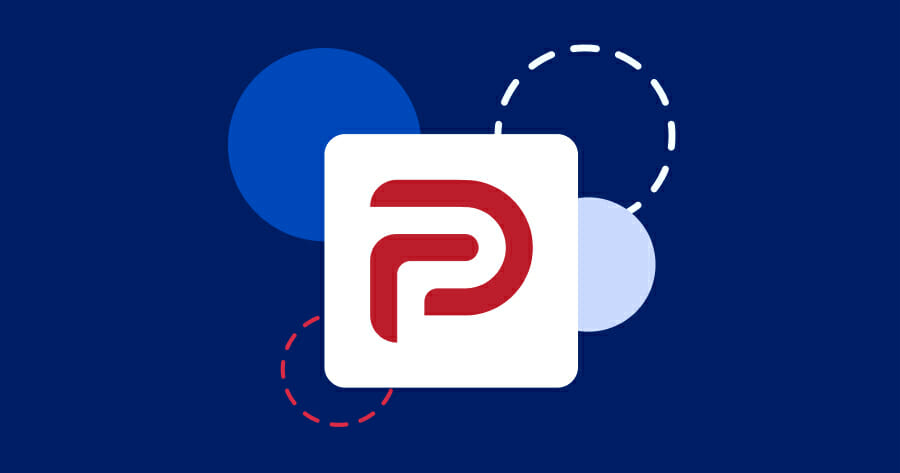Thanksgiving 2020. A time for food, in-person or virtual family interactions, and conversations about the latest politically charged social media app. As the newly crowned number one new downloaded app in both the Apple App and Google Play Stores, Parler will most likely be a subject of conversation for you this year. But what is it – and what does this social media site mean for your financial brand?
Parler was launched this past summer, but experienced dramatic exponential growth during the 2020 presidential election. Many on the right side of the political aisle, frustrated with claims of improper censorship on Twitter and Facebook, saw Parler as an opportunity to share information without having disclaimers about content’s truthfulness.
Immediately following the election cycle, consumer trust in social media platforms reached peak volatility. Across all of the main platforms, claims of improper censorship and influence on speech has driven many new users to download Parler. While not quite like any other social media site already available, its growing base of users is a burgeoning trend that financial brands should note. How is it different? What key takeaways should you note? And how should your financial brand prepare? We’ll go over each of these questions below.
What is it?
Started in 2018, Parler’s tagline, “The Free Speech Social Network,” is designed to appeal to a specific audience. These are often individuals who feel that other social media sites have been unjustly censoring content. Notably, its base of users lean to the right. Like Twitter, it’s marketed as a micro-blogging and social networking site, but with a few wrinkles to make it different.
What makes it unique?
There are two key features that make Parler stand out. First, Parler employees do not filter, review, or moderate content directly. Instead, they rely on users to report violations of their terms of service. This indirect process is more time consuming and decentralizes the review process.
Second, advertising options are limited. Other social sites enable brands to promote posts directly, either to generate awareness or drive traffic. On Parler, brands can only advertise through an influencer. This limited, influencer strategy only could present a unique dilemma for financial brands, as they will now have to engage in partnerships with certain users in order to grow on the platform.
Terminology
Like with most social media sites, Parler introduces its own set of terminology. Parlays and posts are used interchangeably, but refer to the same type of content. Affiliates are news and content producing organizations that create posts for Parler users to read, engage with and promote. Despite these new phrases, there are a few aspects financial brands should note.
Comment Moderation
Brands are given the power to review comments before publication. This gives you greater control on what is, and isn’t, visible on all aspects on your content. To help you better picture this, imagine, on Facebook, if you could restrict comments to your own posts. This has significant implications; namely, you could make it appear as though no one disagrees with your parleys.
Risk Management
Throughout our conversations with financial brands, risk management has nearly always been a top concern for social media marketing. Managing the risks of a new social platform, in particular one with a different moderation method will be a significant concern for compliance teams. As was the case with startups like TikTok, trying to manage reported violations were unsuccessful early-on and could present a stubborn problem for financial institutions.
As most of Parler’s users join because they were frustrated that their content was censored, this implies that this site could welcome content that would otherwise be censored on others. Organizations will be taking a risk by aligning with this content and will need to think about implications to their brands before joining the site.


